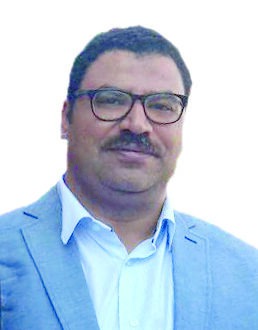At the opening of the African Union Summit in Addis Ababa last week, UN Secretary-General António Guterres referred to what he described the “unfair financial system” which denies many African countries the debt relief and concessional financing they need.
African countries are getting a raw deal from the international financial system which charges them “extortionate” interest rates, Guterres said, calling for radical reform to serve the needs of developing countries.
The UN Chief wondered why African countries are often left out when global lenders dish out the dosh while health, education, social protections, job-creation, and gender equality are starved of investment.
African countries owe $696 billion to outsiders in their bid to build infrastructure, finance social programmes and deal with budgetary deficits.
However, the coronavirus pandemic and global inflation, compounded with high food and energy prices, pushed many poor countries into debt distress as they were expected to keep servicing their debts.
During the summit, the AU launched a debt status data bank on its member states as the first step to monitor and advise on possible distress.
Public debt ratios in sub-Saharan Africa are at their highest in more than two decades, the International Monetary Fund said last year.
Several governments on the continent sought debt restructuring deals under an IMF programme to help them navigate the crisis, but the conclusion of the process has been delayed.
Meanwhile, other countries, which have not sought to restructure their debt, have seen their debt sustainability indicators worsen after the pandemic hit their finances.
The IMF says 15 per cent of low-income countries are in debt distress and a further 45 per cent are at high risk of debt distress. One-quarter of emerging economies are on the brink of bankruptcy and facing “default” borrowing spreads.
Unblocking debt restructuring for distressed economies was expected to take centre stage at the meeting of the G20 finance ministers and central bank governors which was held on 22-25 January in India.
The G20 — 19 countries and the European Union — address issues of international financial stability, climate change mitigation, and sustainable development, underpinning the core purpose to take collective action and work with emerging economies. As a leading multilateral platform, the G20 has a crucial role in securing future global economic growth and prosperity, since its members account for 85 per cent of global GDP, 75 per cent of global trade, and two-thirds of the world’s population.
According to a Reuters report, India, the current G-20 president, is drafting a proposal to help debtor nations by asking lenders, including China, the world’s largest sovereign creditor, to take a large haircut on loans.
“While thinking about debt concerns faced by countries, it is also important to think about what we can do to forestall them,” India’s Chief Economic Adviser V Anantha Nageswaran told reporters at a news conference ahead of the G20 meeting.
India also reportedly supports a push by the IMF, the World Bank and the US for the so-called Common Framework (CF) — a G20 initiative launched in 2020 to help poor countries delay debt repayments — to include middle-income countries.
However, observers see that the mounting rivalry between the US and China could avert any efforts to treat the issue of developing countries’ debts. As Washington and Beijing disagree on the way forward, they are leaving many economies in destructive limbo.






Discussion about this post